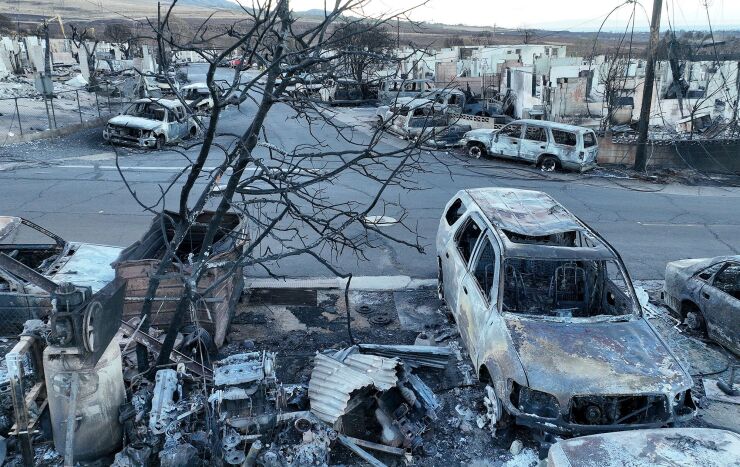Victims of the wildfires in Hawaii now have until August to file various federal individual and business tax returns and make tax payments. The
Affected individuals, businesses and tax-exempt organizations will have until Aug. 7, 2024, to file their 2023 returns and pay due taxes due. The IRS is offering relief to Maui and Hawaii Counties, the two areas designated by the Federal Emergency Management Agency. Individuals and households that reside or have a business in these localities qualify for tax relief.
The current list of eligible localities is on the
The relief postpones tax filing and payment deadlines from Aug. 8, 2023, through Aug. 7, 2024. Affected individuals and businesses now have until Aug. 7 to file returns and pay taxes due during this period. For example, the Aug. 7 deadline now applies to:
- Individual income tax returns and payments due on April 15, 2024;
- 2023 contributions to IRAs and health savings accounts for eligible taxpayers;
- Quarterly estimated income tax payments due on Sept. 15, 2023, and Jan. 16, April 15 and June 17 of 2024;
- Quarterly payroll and excise tax returns due on Oct. 31, 2023, and Jan. 31, April 30 and July 31, 2024;
- Calendar-year partnership and S corp returns due on March 15, 2024;
- Calendar-year corp and fiduciary returns and payments due on April 15, 2024; and
- Calendar-year tax-exempts' returns due on May 15, 2024.
Individuals, businesses and tax-exempt organizations with extensions to file 2022 returns also have until Aug. 7 to file. Payments on these returns are not eligible for this relief as they were due before the wildfires.
Taxpayers who need a filing extension beyond Aug. 7 for 2023 federal income tax returns should request it electronically by April 15, 2024. Between April 15 and Aug. 7, a request can only be submitted on paper. Whether they request electronically or on paper, taxpayers have until this Oct. 15 to file. Payments are still due on Aug. 7.

This IRS
The IRS automatically provides filing and penalty relief to any taxpayer with an address of record located in the disaster area. Affected taxpayers without an address of record in the disaster area — because, for example, they moved to the disaster area after filing their return — could receive a late-filing or late-payment penalty notice from the IRS for the postponement period. The taxpayer should call the number on the notice to have the penalty abated.
The IRS will work with any taxpayer who lives outside the disaster area but whose records to meet the new deadline are in the affected area. Taxpayers qualifying for relief who live outside the disaster area should call the IRS at (866) 562-5227. This includes workers who assist relief activities and who are affiliated with a recognized government or philanthropic organization.
Individuals and businesses in a federally declared disaster area who suffered uninsured or unreimbursed disaster-related losses can claim them on either the return for the year the loss occurred (in this instance, the 2023 return normally filed this year) or the return for the prior year (2022). Taxpayers have up to six months after the due date of their federal income tax return for the disaster year (without regard to any extension of time to file) to make the election. For individual taxpayers, this means Oct. 15, 2024.
Taxpayers should write the FEMA declaration number — 4724-DR — on any return claiming a loss.





